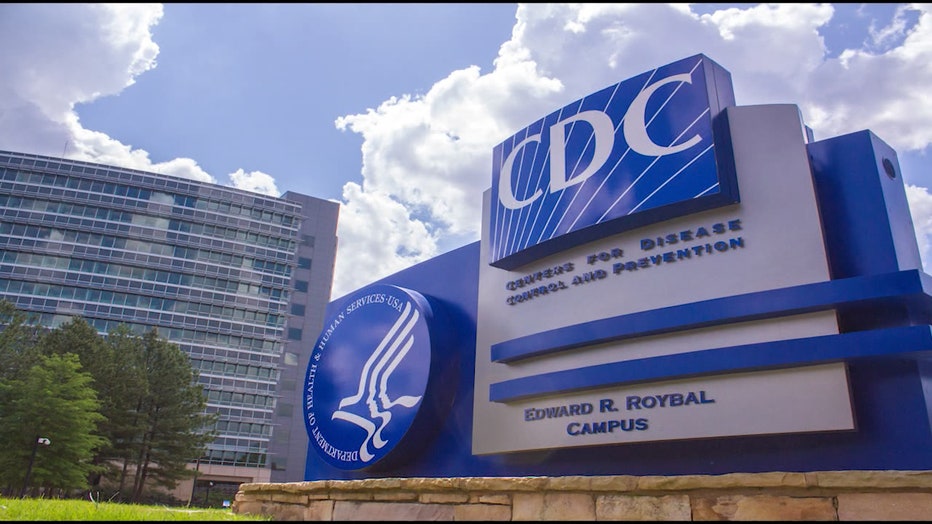CDC quietly changes COVID-19 testing guidance, triggering criticism
CDC quietly change COVID-19 testing
The Centers for Disease Control and Prevention quietly change COVID-19 testing guidelines, triggering criticism.
ATLANTA - In a shift in strategy, the Centers for Disease Control and Prevention now says, if you are exposed to someone infected with COVID-19, but you do not have symptoms, you do not necessarily need to get tested for the virus, with certain exceptions.
The Atlanta-based agency quietly changed its testing guidance on its website Monday, triggering a backlash from critics in the medical community, who say the CDC has not explained a scientific reason for veering away from more widespread testing.
Until now, the agency has recommended anyone who comes into close contact (within 6 feet) of someone infected with COVID-19 for at least 15 minutes to get tested for the virus.
In a written statement released Friday, CDC Director Dr. Robert Redfield said the agency is emphasizing testing symptomatic people and certain groups, like vulnerable individuals, people living or working in long term care facilities, critical infrastructure workers, healthcare workers, first responders and asymptomatic individuals prioritized by their medical providers or public health officials.
"Everyone who needs a COVID-19 test can get a test," Redfield is quoted in the statement. "Everyone who wants a test does not necessarily need a test; the key is to engage the needed public health community in the decision."
Sign up for FOX 5 email alerts

Centers for Disease Control and Prevention in Atlanta. (FOX 5)
Dr. Redfield says testing may be considered for all close contacts of confirmed or probable COVID-19 patients.
"Those contacts who test positive (symptomatic or asymptomatic) should be managed as a confirmed COVID-19 case," he continues.
Microbiologist and immunologist Dr. Amber Schmidtke, Ph.D., says she was surprised by the move and the CDC's lack of a scientific explanation for it.
"I'm very confused with what's going on there," Schmidtke says. "It doesn't seem to make sense with what we know about how the disease is spread."
Schmidtke says widespread testing is because, by the CDC's own estimate, about 40% of people with COVID 19 are asymptomatic carriers, who show no signs they are infected.
So, Schmidtke says, screening larger numbers of people can help identify and isolate asymptomatic spreaders so that health departments can track down and test their close contacts, which can limit the virus's ability to spread.
"So, seeing that the recommendations have shifted to testing fewer people, almost gives the sense that we've given up on trying to control the spread of a pandemic, and that's very concerning," Schmidtke says.
Download the FOX 5 Atlanta app for breaking news and weather alerts.
Evidence shows masks may help avoid severe illness
Evidence shows masks may help avoid severe illness, even if you get COVID-19.
Dr. Redfield says the White House Coronavirus Task Force was consulted and gave input on the updated guidance.
It is not clear what the CDC's change in testing guidance means for Georgians who are exposed to the virus and want to get tested but do not have symptoms.
Asked for a comment, a spokeswoman for the Georgia Department of Public Health did not respond by FOX 5 Atlanta's Thursday afternoon deadline.
Schmidtke warns we cannot find what we are not looking for.
"So, if we're not testing, we're not going to find the disease where it is," she says. "And, the thing about the virus is it doesn't care whether we know who is positive or not; it's still going to spread within our community."
In the CDC statement, Dr. Redfield recommends anyone who has been in close contact with a confirmed or probable COVID-19 patient take the following steps:
- Monitor your symptoms
- Take special precautions to protect the vulnerable
- Wear a mask
- Stay at least 6 feet apart
- Wash hands
- Talk to health care provider or public health department to determine if test is needed
If you do get tested, Amber Schmidtke says, isolate at home until you get your test results, to avoid infected others, if you do have the virus.
RELATED: CoronavirusNOW.com, FOX launches national hub for COVID-19 news and updates.
Know how the COVID-19 outbreak is impacting Georgia

